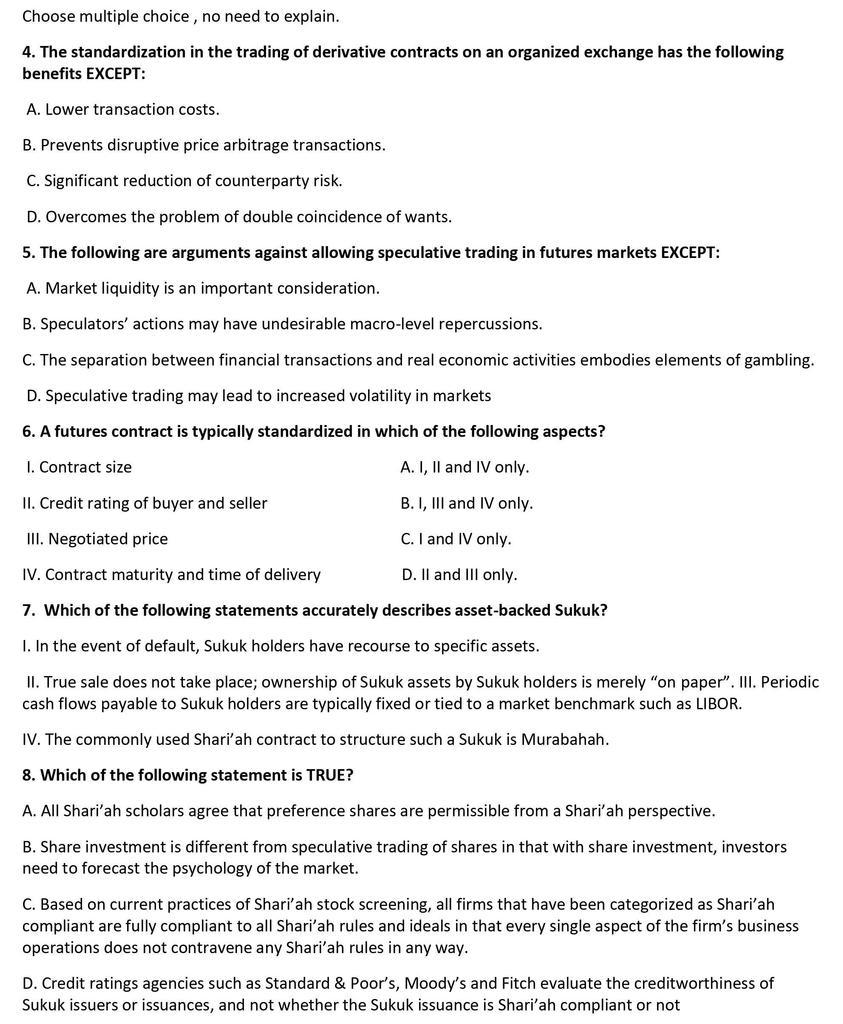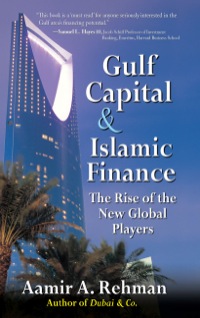
Choose multiple choice, no need to explain. 4. The standardization in the trading of derivative contracts on an organized exchange has the following benefits EXCEPT: A. Lower transaction costs. B. Prevents disruptive price arbitrage transactions. C. Significant reduction of counterparty risk. D. Overcomes the problem of double coincidence of wants. 5. The following are arguments against allowing speculative trading in futures markets EXCEPT: A. Market liquidity is an important consideration. B. Speculators' actions may have undesirable macro-level repercussions. C. The separation between financial transactions and real economic activities embodies elements of gambling. D. Speculative trading may lead to increased volatility in markets 6. A futures contract is typically standardized in which of the following aspects? I. Contract size A. I, II and IV only. II. Credit rating of buyer and seller B. I, III and IV only. III. Negotiated price C. I and IV only. IV. Contract maturity and time of delivery D. II and III only. 7. Which of the following statements accurately describes asset-backed Sukuk? I. In the event of default, Sukuk holders have recourse to specific assets. II. True sale does not take place; ownership of Sukuk assets by Sukuk holders is merely "on paper". III. Periodic cash flows payable to Sukuk holders are typically fixed or tied to a market benchmark such as LIBOR. IV. The commonly used Shari'ah contract to structure such a Sukuk is Murabahah. 8. Which of the following statement is TRUE? A. All Shari'ah scholars agree that preference shares are permissible from a Shari'ah perspective. B. Share investment is different from speculative trading of shares in that with share investment, investors need to forecast the psychology of the market. C. Based on current practices of Shari'ah stock screening, all firms that have been categorized as Shari'ah compliant are fully compliant to all Shari'ah rules and ideals in that every single aspect of the firm's business operations does not contravene any Shari'ah rules in any way. D. Credit ratings agencies such as Standard & Poor's, Moody's and Fitch evaluate the creditworthiness of Sukuk issuers or issuances, and not whether the Sukuk issuance is Shari'ah compliant or not







